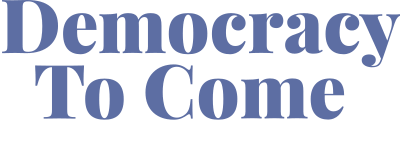
One of the scariest things I can recall about being a young academic was attending conferences. Not only were you being asked to present your work to more experienced colleagues (scared witless about receiving terrible feedback or your lack of knowledge being exposed) but you were also thrown in to the dreadful world of “networking” in between sessions in which you knew virtually nobody but were expected to strike up a rapport without completely embarrassing yourself. It is, for most people, a difficult experience and can lead to exclusion and a broader feeling that you cannot fully contribute. It can bring out all of the worst feelings of the so called “imposter syndrome” where you wonder whether some kind of administrative error was made about your admission to this academic “club”. That it could, at any second, be revoked leading to your removal from the building bringing forth a strange sense of calm within you that your academic colleagues have finally come to their senses!
These feelings can, of course, be exacerbated if you feel out of place in an academic context. Numerous studies have found conscious and unconscious discriminatory practices at conferences along racial and gender lines which can make it even more difficult for women and minorities to feel included. Personally, my own feelings of not belonging in academia (and feeling out of place at conferences) originate from my working-class background. Much of what goes on at traditional academic conferences (the norms around debate, networking, dress etc) seem to have been inherited from an odd mixture of public (private) school and business practices that people are just expected to either know or pick up very quickly. Academics from, or with family from, such backgrounds tend to be able to adopt these norms of interaction a lot quicker and with much less anxiety than those who are not. All of this amounts to a greater potential for feelings of exclusion whilst communicating with others in these settings and of trying to fit in with the wider group. None of this is easy, of course, and what is more none of it is ever explained to us as aspiring academics and/or talked about at length beforehand. It is just expected that you adapt, which I suspect strikes most of us as an incredibly unfair and undesirable state of affairs.
So, what can be done about these feelings of exclusion at conference settings and within management education more broadly? How might we devise a conference setting (both within and beyond academia) that helps people from across a diverse range of backgrounds feel included? This is the subject of a new paper co-authored with Prof. Daniel King (Nottingham Trent University) and Prof. Emma Bell (Open University). In the paper we consider the potentialities of democratising the conference through a new approach called unconferencing. The abstract for the paper, now published here in Academy of Management Learning and Education, is as follows:
“Unconferences are non-hierarchical, participant driven, self-managed meeting formats which seek to avoid top-down hierarchical knowledge transmission found within traditional conferences. This article explores how unconferencing, which aspires to the participatory ideals of Habermasian deliberative exchange, can contribute to inclusivity within conferences and Critical Management Education (CME) more generally. Informed by empirical data collected at four unconferences we explore how they encourage a move: i) from exclusion towards inclusion of individual voices; ii) from hierarchical towards horizontal group learning and iii) from passive disengagement towards a spirit of engagement and inclusion. Drawing on the deliberative feminist critique of the Habermasian foundations of CME, we highlight the implicit assumptions around inclusion within unconferencing at the individual, group and structural levels. We argue that by adopting these more explicitly inclusive practices management education can be opened up to a broader range of voices. In doing so the article demonstrates the potential of unconferences as a way of rethinking professional management education that challenges power-relations and can increase inclusivity.“
The article we have written is an effort to revitalise a conversation about inclusion in conference settings through a proactive approach with some practical (and some might even argue radical!) suggestions. Over time, the majority of academics tend to have a much easier experience at conferences, although I am not sure feelings of exclusion ever entirely disappear. The hierarchical style of communication (one speaker, many listeners) and the wider rules and norms of conference behaviour and etiquette make this incredibly difficult. But for any early career scholars reading this blog (dreading the awkwardness of the next conference!) things do improve over time. The issue of course, is getting to this point in the first place. It is very important, I think, to not see this struggle for inclusion as an initiation or hazing ritual that all academics must get through over time. Instead, it is important that we find ways that can aid inclusion through more democratic practices at conferences so that we make conferencing something for everyone. Unconferencing is one such suggestion that through this article we have tried to bring more attention to so that it is seen as a workable, tried and tested alternative.
Nowadays I enjoy conferences very much. I have been lucky enough to travel to some places I never thought I would, from Buenos Aires to Vancouver, and despite the obvious environmental concern around academic conferencing I hope to do much more travelling in the coming years. It is an essential part of not only sharing research but also hearing about what my colleagues have been doing whilst also being exposed to a broader range of cultures and perspectives than what I otherwise would have been. In the paper we offer a variety of ways that we might improve inclusion in conferences and management education more broadly. However, whilst in the medium term, we push for structural change around the rules and norms of conferences, in the shorter term we could all probably contribute more by including those who seem a little lost at conferences, by opening up our groups and being more inclusive in our everyday practices. I will certainly be trying to do that at my next upcoming conference in Vienna – and feel free to approach me and remind me of this blog and the related article if at any point I am not! If nothing else, I will have provided the perfect conversation starter…





